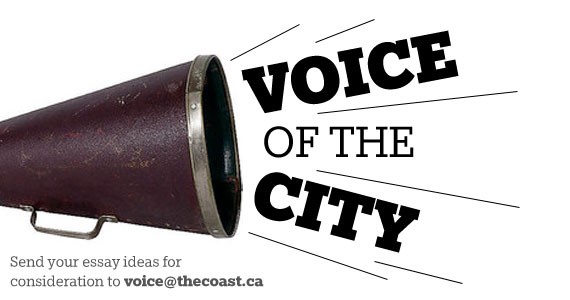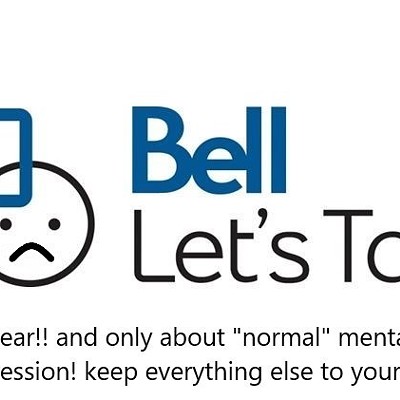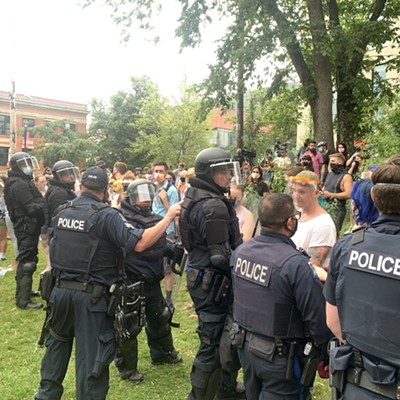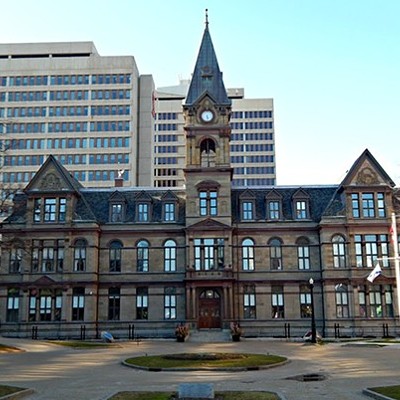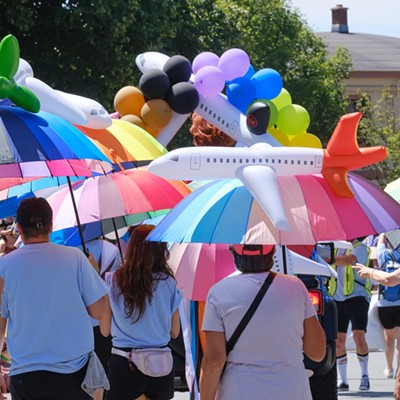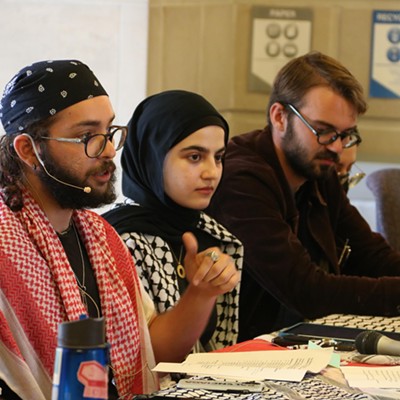Like many people, I often ride my bike to work. As a person with a disability living in Halifax my transportation options are as follows: One, take a bus route which uses ALF (Accessible Lower Floor) buses. Two, use Access-A-Bus services, for which one must be declared eligible through a registration process and then must book their trip 24 hours in advance, with a maximum of five trips a day. Three, drive my car (which I am privileged to own), and struggle to find downtown accessible parking. Four, ride my bike.
Often, riding my bike is the most convenient and enjoyable option. It allows me to get close to work if downtown parking is too difficult; it affords me flexibility; and it feels damn good.
My particular experience of disability means that I have terrible balance, and subsequently my bike is a sweet four-wheeled machine. It was once just a plain, old, regular road bike and then the lovely folks at Nauss Bike Shop affixed two training wheels onto the back of it. On four wheels, rather than two, I can move smooth and easy across the pot-holed pavement of our city streets, feeling safe and secure. I love my bike in a very particular way, in a way which I suspect one can only truly understand if they too have had their mobility compromised --- if they have ever felt stuck; if they know the experience of not being able to rely on their body to take them places. So I ride my bike with love, pride and joy. I ride it for myself and for convenience and really, because why the hell not?
However, the unfortunate truth is that riding my bike is not just simply a pleasurable experience. It often creates whole new barriers and negative experiences which I don’t experience when in my car.
For the purpose of this article, I kept a tally. I rode my bike to-and-from my home in the north end to my job downtown for two days in a row. Over those two days, I was yelled at by strangers a total of seven times. Commentary from the general public included a group of adults jeering and pointing at me while yelling “Ha ha, training wheels!”; someone shouting “Hey sweetheart, gimme a ride?”; someone pointing and asking their friend (rather than me) “What is that?”; and another person reminding me that I had to grow up someday.
I am never sure what to do with these words. I am usually mid-bike ride, hurrying somewhere, and so I do nothing. I don’t even acknowledge them. I let them slide off my back and leave them in the dust I’ve kicked up. I’m not sure exactly what I ought to do because I don’t know where words like these come from. I’m not sure if people aim their verbal disdain at me because they don’t understand me and that scares them, or if they are just cruel, or if they think making fun of people who are different is enjoyable. I can’t place it. The verbal harassment I experience while riding my bike is a very particular form of ableism that I simply can’t wrap my head around. While I know that the world and people in it can be exclusionary, unkind and inaccessible to people with disabilities in a variety of ways, I am still thrown wildly off-kilter when I experience that cruelty in such a visceral way while just trying to get to work.
It speaks to my privilege as a person with a disability that I am often able to avoid people and places which hurt me. I do not have to rely on ableist service providers, for example. I am lucky in many ways, but knowing that doesn’t necessarily make the street harassment I experience feel more manageable. Nope, being cat-called and shouted at still feels terrible, and I am not the only person this happens to.
Street harassment happens to a variety of people for a variety of reasons. The street harassment I personally experience is rooted in ableism, but many other individuals are yelled at, gesticulated at and worse, attacked because of misogyny, transmisogyny, sexism, racism and homophobia to name only a few. It is something that happens to people in every city, every day. It is not something I expect will end any time soon, but a person can hope.
So, if you are interested in preventing street harassment in our city here are a few simple things you can do: First, do not harass people. If you are considering yelling at someone because you think they look nice in a skirt; if you can’t understand their gender presentation; if they ride a bike with training wheels, or for any reason at all, I encourage you to instead not say or do anything. Inserting yourself in someone else’s day-to-day life is a shitty thing to do. This is a critical step. Secondly, if you can be an ally, be one. If you see someone being harassed on the street and it feels safe for you to help them out, then do so. This can look like you and your friends standing nearby so that the person knows they are not alone. This can look like you checking in with the person who was just been yelled at and asking if they need anything. These are only a few examples. Ultimately, I encourage us to take care of one another in ways that feel safe and supportive.
Kaleigh Trace is a disabled, queer sex educator and writer. She just published her first book Hot, Wet & Shaking: How I Learned to Talk About Sex and it can be found at your local book store.

